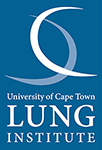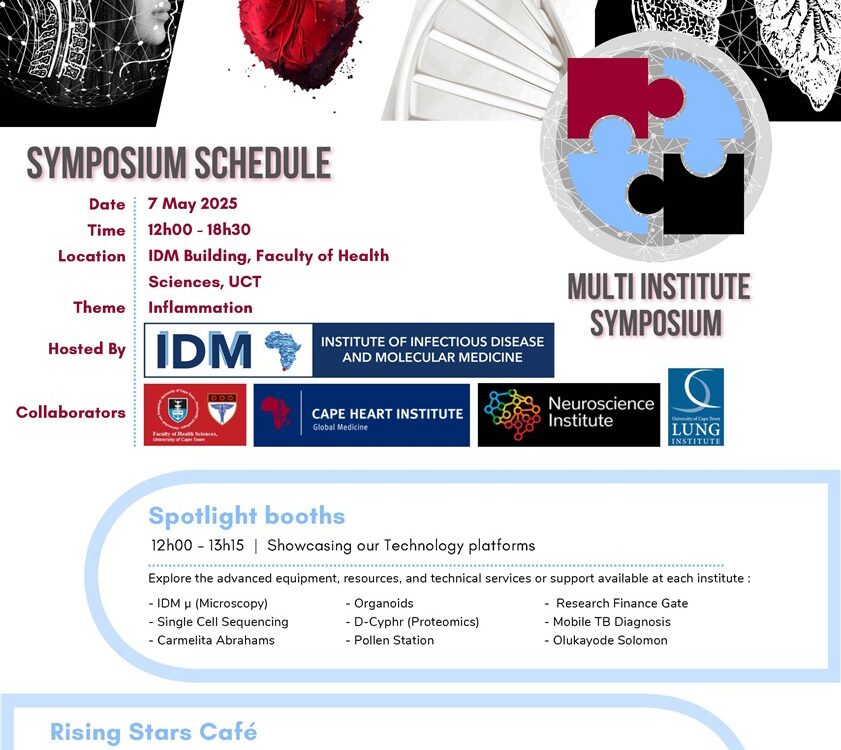The funding will assist researchers to evaluate the feasibility and effectiveness of the project in four sub-Saharan African countries, including South Africa, and to calculate the impact of the intervention on the disease burden.
“We need to go out into communities to find infectious cases, confirm the diagnosis and initiate treatment much earlier on.”
According to Professor Keertan Dheda, head of the CLII, almost all public health systems rely on passive case finding to track down and treat patients with TB. This means that TB patients only seek care when they feel ill. By then, more than 95% of the onward TB transmission has already occurred. This needs to change. “We need to go out into communities to find infectious cases, confirm the diagnosis and initiate treatment much earlier on, thus interrupting the transmission cycle,” Dheda said.
Mobile clinic
In this innovative TB testing model, health professionals will make use of a portable, battery operated molecular tool, GeneXpert Edge – a standardised testing device that detects TB DNA in sputum. The testing will be done in a low-cost, panel-van-sized mobile clinic. “Our previous studies have shown that this is feasible. There are many missed opportunities to find undiagnosed TB cases. About a third of the cases we diagnose in communities are highly infectious,” he said. And for the first time, his team will also be able to quantify the infectiousness of community-based cases of TB using a cough aerosol sampling technology. This, he explained, will enumerate the culturable, infectious droplets emitted by each case of TB. For a balanced perspective, the group recruited to participate in this study will be divided into two categories. Category one requires that diagnostic testing takes place on site in the mobile clinic using the GeneXpert Edge device, while category two requires participants’ sputum to be sent to a centralised laboratory.
Further investigation
Following the category testing, the research team will carry out immunological and imaging studies like positron emission tomography – computed tomography scans (PET-CT scans) on community members. Both studies will allow for further investigations, especially into communities aggressively affected by TB but where community members display minimal symptoms of the disease. “Very little is known about these patients. Why are they highly infectious, yet have so few symptoms? “This study will help us to better understand community-based transmission and define a new standard of care for early detection of TB.” The model of testing is specifically aimed at informal settlements where research indicates that a large burden on undiagnosed TB cases is found. “Two out of every five cases of TB remain undiagnosed or hidden. These cases are predominantly found in peri-urban, resource-poor settings.”
Nipping TB in the bud
Almost 350 000 cases of TB go undiagnosed in South Africa every year. As a result, Dheda stressed the urgent need for an intervention. “One of the reasons we can’t get on top of the TB epidemic is because diagnosis and treatment occur too late in the transmission cycle,” he said. Diagnosing TB before patients seek care could help avoid or reduce progressive lung damage and diminish the spread of the disease.
“One of the reasons we can’t get on top of the TB epidemic is because diagnosis and treatment occurs too late in the transmission cycle.”
Through this project – by taking testing to community level – healthcare professionals will be given an opportunity to track down friends and family of already diagnosed TB patients, and to start treatment as soon as possible. “In order to enable early detection, one needs to move diagnostics out of the laboratory and closer to the patient,” he said. “It is likely that this work will define a new standard of care for community-based TB diagnosis. Together with alleviating poverty and overcrowding, it’s an important step in improving TB control.”
Creative Commons License This work is licensed under a
Creative Commons Attribution-NoDerivatives 4.0 International License.
Please view the republishing articles page for more information.
https://www.news.uct.ac.za/article/-2020-01-20-community-based-intervention-to-identify-undiagnosed-tb-cases




